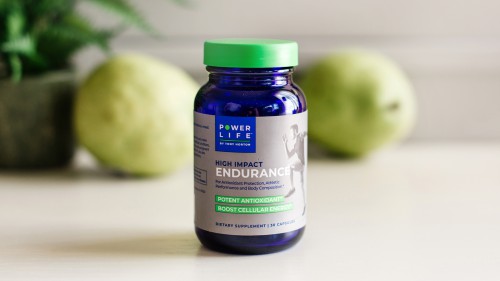Pre-Workout Supplements Explained in Simple Terms
Last Updated on October 18, 2021
Medically Reviewed by Anthony Dugarte, MD
Exercise and athletic achievements come easier when your mind and body feel alert and energized. Without proper fuel, it’s harder for your body to perform work and fatigue sets in more quickly. Pre-workout supplements are one way many people prefer to maintain energy for exercise.


While food plays a role in providing energy for your body during physical activity, regular gym-goers and athletes often incorporate pre-workout supplements into their routine to enhance energy and athletic performance for optimal training results.
If you’re struggling to power through your workouts or not getting the results you want, you may be wondering if a pre-workout supplement is right for you.
Here, I’ll break down the most common ingredients found in pre-workouts, what they do, and the pros and cons of taking a pre-workout.
What Do Pre-Workout Supplements Do?
Pre-workout refers to a type of supplement that is consumed before exercise. Some people eat a meal, snack, or shake before working out, which they may also refer to as a pre-workout.
For this article, we’ll be discussing pre-workout supplements.
Pre-workout supplements are designed to enhance energy and stamina, improve mental focus, and boost athletic performance.
Many people consume pre-workout supplements to give them an extra push to show up for their workout and help them work out harder and longer before fatigue sets in.
Most pre-workout supplements come in a powdered form that is added to water, but you’ll also find pre-workout supplements available in tablet and ready-to-drink forms.
Powdered pre-workout supplements are typically formulated with multiple ingredients, plus artificial or natural flavoring, and are meant to be consumed 30 minutes to one hour before a planned workout.
What Ingredients Are Found in Pre-Workout Supplements?
Pre-workout supplements often contain proprietary blends of active ingredients. As a result, the ingredients can vary between products greatly.
The market is also saturated with these products, so directly comparing different pre-workout formulas can be tough.
Below, I’ve outlined common ingredients found in pre-workout supplements and their primary function and benefit. (1)
Caffeine
Caffeine is included in many pre-workout formulas to act as a stimulant. (2)
Caffeine acts on the central nervous system to produce an energizing effect on both the mind and body.
Caffeine is especially beneficial for individuals who are exercising early in the morning or without adequate sleep.
The amount of caffeine found in pre-workout formulas ranges greatly.
The recommended amount of caffeine to consume for athletic performance is 3–9 milligrams per kilogram of body weight, consumed one hour before activity. (3)
For a 150-pound person, this would be roughly 200–600 milligrams of caffeine.
Considering the typical caffeinated beverage contains 70–100 milligrams of caffeine per serving, this amount is akin to drinking 2–6 cups of coffee.
400 milligrams of caffeine per day is considered the maximum safe limit for most adults, so some pre-workout supplements may exceed this amount. (4)
Although the energizing effects of caffeine are well documented, the benefit does not come without drawbacks. (5)
Depending on the individual and the amount consumed, caffeine can result in increased feelings of anxiety, irritability, and restlessness.
Excessive caffeine intake can also interfere with normal sleep patterns and your circadian rhythm, resulting in loss of sleep and insomnia, along with normal heart rhythm.
Branched-Chain Amino Acids
Branched-chain amino acids (BCAAs) refer to three amino acids: valine, leucine, and isoleucine.
These proteins are essential, meaning the body cannot produce them, and they need to be obtained from food or supplement form.
Muscle tissue contains a large amount of BCAAs, so it’s believed BCAA supplementation can help repair and promote new muscle growth after exercise. (6)
BCAAs are included in pre-workout formulas to promote muscle growth and reduce muscle fatigue.
However, a 2018 review of recent literature has found insignificant results to support the use of BCAAs for muscle synthesis. (2)
B Complex Vitamins
B vitamins are often found in pre-workout formulas because they play a role in energy metabolism.
B vitamins are critical for the production of energy, known as ATP, on the cellular level. (7)
It’s believed that ingesting B vitamins before a workout helps improve energy and delay fatigue.
There are the eight water-soluble vitamins that make up the B complex:
- B1 (thiamin)
- B2 (riboflavin)
- B3 (niacin)
- B5 (pantothenic acid)
- B6 (pyridoxine)
- B7 (biotin)
- B9 (folate)
- B12 (cobalamin)
You may find any combination of the above vitamins in a pre-workout supplement.
Nitric Oxide Boosters
Nitric oxide (NO) increases blood flow through the body. L-arginine, L-citrulline, and malate are involved in producing nitric oxide and are often found in pre-workout formulas.
Beetroot extract is another NO booster ingredient found in some pre-workout formulas.
Beets contain nitrates which are converted to nitric oxide in the body. (8)
It’s believed that increasing NO production will result in increased blood flow to muscles and better exercise performance.
This 2018 article concluded there is limited evidence to support L-arginine supplementation for exercise. (2)
L-citrulline has been linked to increased blood flow and enhanced exercise performance, but in doses significantly higher than found in most pre-workout supplements.
Creatine
Creatine is an amino acid found in muscle tissue. Creatine’s main job is to combine with a phosphate molecule to form phosphocreatine, a form of energy stored in muscle cells.
Supplementing with creatine results in increased phosphocreatine levels in muscles, so there is more energy available to your muscles during exercise.
Creatine supplementation is well-studied, considered safe, and there is significant evidence supporting its use in exercise.
Creatine supplementation is linked to improved exercise performance, exercise injury prevention, and better recovery following exercise. (9)
The recommended dose for creatine for maximum benefit as a pre-workout is at least 3 grams per day. (2)
Tyrosine
Tyrosine is an amino acid involved in producing several neurotransmitters, including dopamine, adrenaline, and norepinephrine.
In a pre-workout supplement, tyrosine is believed to support mood, cognitive function, and the body’s reaction to exercise-induced stress.
However, research on its efficacy in exercise performance is limited.
Betaine
Betaine is a derivative of the amino acid glycine. It’s involved in the production of creatine and NO.
Supplementation of 1.25 to 2.5 grams of betaine per day is linked to improved performance during resistance training. (2)
Betaine supplementation may also help improve body composition by decreasing fat mass, but more research is needed to understand this relationship and ideal dosage. (10)
Beta-Alanine
Beta-alanine is a non-essential amino acid, meaning the body can produce it. It has antioxidant properties and is used to form carnosine, which is a protein-building block found in muscle tissue.
Some research has found 4–6 grams of beta-alanine supplementation per day can increase high-intensity exercise performance. (2, 11)
Flavoring Agents and Sweeteners
As previously mentioned, powdered pre-workout supplements contain artificial or natural flavors. Most pre-workouts are designed to taste fruity or like a ready-to-drink sports beverage.
Sweeteners, including sugar, are also used in pre-workout formulas to improve the taste.
Besides sugar, which also provides energy, pre-workouts may contain artificial sweeteners, like aspartame or sucralose, or natural sweeteners, such as stevia or monk fruit extract.
Other Ingredients
The above list is by no means inclusive of all pre-workout formulas.
You can also find other amino acids, mood enhancers, herbal ingredients, and plant compounds in pre-workout supplements.
Ingredients that are banned in competitive sport, including some illegal drug-related stimulants and anabolic agents, may be found in some pre-workout supplements.
It’s imperative to choose a carefully formulated pre-workout product that is free from contaminants.
Athletes need to take special care to make sure any pre-workout supplement they use is free from banned substances that could result in failing performance-enhancing drug tests or event disqualification.
Benefits of Taking a Pre-Workout
Enhanced Exercise Performance
The main benefit of using a pre-workout supplement is enhanced performance during physical activity. (2)
Using a pre-workout can boost energy, mood, and endurance so you can engage in longer and more productive workouts.
If a pre-workout helps you work out more often, for a longer duration, or complete more repetitions, you may experience accelerated results in performance, strength, and body composition.
Convenience
Most pre-workout supplements are easy to consume and can conveniently be taken on the go.
Drawbacks
Side Effects
The top drawback to using a pre-workout supplement is stimulant-induced side effects, like jitters, anxiety, headaches, and digestive issues.
Proprietary Blends
Another major con to pre-workout supplements is the use of proprietary blends. (2)
The Supplement Facts label on many pre-workout formulas provides the total amount of a blend of ingredients per serving but not the individual amounts of each ingredient.
A 2019 study comparing ingredients in pre-workout formulas found that many of these supplements contain smaller doses of active ingredients compared to current recommendations. (1)
Proprietary blends make it impossible to know exactly what you’re taking, how it compares to amounts tested for safety and benefits in research, and whether you’re getting your money’s worth.
Safety
The two most important things to do before starting a pre-workout supplement are to check with your healthcare provider to make sure the formula is safe for your individual health needs and to follow the recommended dosing instructions on the Supplement Facts label.
Because pre-workout formulas vary so much, there’s no way to list all the potential side effects associated with ingredients.
In a survey of over 1000 people who use pre-workout supplements, more than half reported side effects, including skin reactions, heart abnormalities, and nausea. (12)
If you take several supplements in addition to a pre-workout, it’s critical to compare ingredients, and ingredient amounts to ensure you’re not exceeding tolerable upper limits or at risk for adverse side effects. A healthcare provider can help you do so.
If you’re sensitive to caffeinated beverages, the amount of stimulants found in many pre-workout supplements will likely exceed your tolerance level and cause adverse effects.
A stimulant-free pre-workout formula is a smart choice for anyone who wishes to avoid caffeine.
If you opt for a stimulant-containing formula, taking it in the afternoon or evening may result in disrupted sleep patterns and insomnia.
This is troublesome since proper rest is critical for health, muscle growth, and workout recovery.
Safety regarding long-term use of pre-workout supplements is relatively unknown, and more research is needed. Therefore, before starting any new supplement, speak with your healthcare provider. (2)
What to Avoid
If you’re sensitive to caffeine, choose a stimulant-free pre-workout.
If you prefer a caffeinated pre-workout, double-check the Supplement Facts label to see how much caffeine it contains.
Remember, the maximum amount of caffeine considered safe in a day is 400 milligrams. Therefore, avoid formulas that contain higher amounts of caffeine to reduce your risk of stimulant-related side effects.
If you’re an athlete, look for a formula that has been approved for sport by an independent third-party offering such certifications, such as NSF International.
Third-party testing ensures the safety and purity of ingredients, so there’s less chance of consuming a product that’s contaminated with athletic banned substances.
You should always check the ingredient label for allergens and ingredients you may be sensitive to or have removed from your diet (i.e., animal-derived ingredients for vegetarian and vegan lifestyles).
If you avoid artificial ingredients, read the ingredient label to be sure the product is made without artificial sweeteners, flavoring, or dye.
How to Use a Pre-Workout Supplement
If you’ve decided to try a pre-workout supplement, here are some tips to get the most out of it.
Pre-workout should be taken as directed. Most pre-workout supplements recommend consuming it 30 minutes before exercise.
Taking a pre-workout 30 minutes to one hour before exercise is common and provides the body ample time to digest and absorb the content.
The serving size can be found on the Supplement Facts label. You should not take more pre-workout than is recommended.
Not every workout may require you to take a pre-workout beforehand, and some research suggests taking pre-workout daily results in building tolerance.
For example, this 2019 study found continued use of caffeine before exercise resulted in a decreased benefit. (13)
Low-intensity exercise and rest days don’t require the use of a pre-workout. You should take the pre-workout on days you have a high-intensity or long workout planned.
If you experience nausea or digestive upset after taking a pre-workout, you could try taking it alongside a small snack, such as half an apple spread with a tablespoon of nut butter.
Consuming a small meal or snack before working out will also provide energy.
The Bottom Line
A pre-workout supplement is not a prerequisite for a quality workout.
The average person who is working out for health benefits or weight loss probably doesn’t need to start taking pre-workout.
As long as you’re eating enough in a day, are well-hydrated, and getting quality sleep, your workout shouldn’t suffer from lack of energy or premature fatigue.
Still, you may feel you occasionally need an extra push to help lace up your sneakers and hit the gym.
Some individuals find drinking a caffeinated beverage, like coffee, before working out can provide enough of an energy boost to work out.
If your goal is improved athletic performance or body composition, a properly formulated pre-workout supplement may make sense to help you meet your goals.
Speak with a healthcare professional to help you select a safe and appropriate supplement for your needs.
At WellnessVerge, we only use reputable sources, including peer-reviewed medical journals and well-respected academic institutions.
- Common Ingredient Profiles of Multi-Ingredient Pre-Workout Supplements:
https://www.ncbi.nlm.nih.gov/pmc/articles/PMC6413194/ - Multi-ingredient pre-workout supplements, safety implications, and performance outcomes: a brief review:
https://www.ncbi.nlm.nih.gov/pmc/articles/PMC6083567/ - Are the Current Guidelines on Caffeine Use in Sport Optimal for Everyone? Inter-individual Variation in Caffeine Ergogenicity, and a Move Towards Personalised Sports Nutrition:
https://www.ncbi.nlm.nih.gov/pmc/articles/PMC5752738/ - U.S. National Library of Medicine: Caffeine:
https://www.ncbi.nlm.nih.gov/books/NBK519490/ - Caffeine and Exercise: What Next?:
https://www.ncbi.nlm.nih.gov/pmc/articles/PMC6548757/ - Branched-chain amino acids in health and disease: metabolism, alterations in blood plasma, and as supplements:
https://www.ncbi.nlm.nih.gov/pmc/articles/PMC5934885/ - Biochemistry, Water Soluble Vitamins:
https://www.ncbi.nlm.nih.gov/books/NBK538510/ - The Potential Benefits of Red Beetroot Supplementation in Health and Disease:
https://www.ncbi.nlm.nih.gov/pmc/articles/PMC4425174/ - International Society of Sports Nutrition position stand: safety and efficacy of creatine supplementation in exercise, sport, and medicine:
https://www.ncbi.nlm.nih.gov/pmc/articles/PMC5469049/ - The effects of chronic betaine supplementation on body composition and performance in collegiate females: a double-blind, randomized, placebo controlled trial:
https://www.ncbi.nlm.nih.gov/pmc/articles/PMC6069865/ - Effects of Beta-Alanine on Muscle Carnosine and Exercise Performance:A Review of the Current Literature:
https://www.ncbi.nlm.nih.gov/pmc/articles/PMC3257613/ - Common Habits, Adverse Events, and Opinions Regarding Pre-Workout Supplement Use Among Regular Consumers:
https://www.ncbi.nlm.nih.gov/pmc/articles/PMC6520716/ - Time course of tolerance to the performance benefits of caffeine:
https://www.ncbi.nlm.nih.gov/pmc/articles/PMC6343867/






